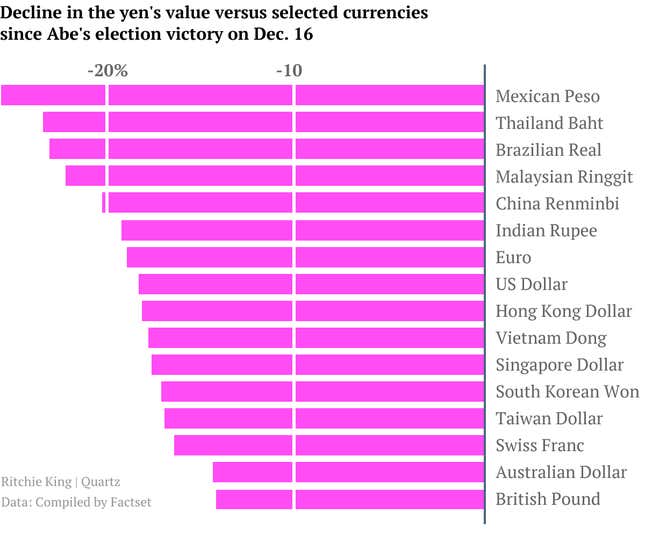
The yen selloff continues, with the milestone du jour being the fact that the Japanese currency today cracked the 100 mark against the US dollar. But Japan’s landmark shift towards money creation—a key cornerstone of what’s become known as Abenomics—is forcing policymakers and corporate executives around the world to contemplate the impact of the tumbling yen. All else equal, the yen’s decline makes products made in Japan cheaper for foreign buyers. It also supercharges the value of Japanese companies’ earnings made overseas in other currencies. (Those profits are much more valuable in yen terms, once they are brought home.) Those two dynamics were clearly in effect in Toyota’s recent earnings report.
Just today the Bank of Korea moved to cut interest rates, in a move that’s widely seen as being designed to keep South Korea’s currency, the won, from growing too strong against the yen. (Central banks effectively control interest rates by raising or shrinking the supply of money. More money + same level of demand for currency = lower price.) Given the strong tilt of Korea’s economy toward exports that compete with Japanese products—think Hyundai vs Honda—a strong won could be a serious problem for Korea. And we’ve seen other surprise moves to cut rates recently from Australia’s Reserve Bank as well as the Bank of Mexico.